The man behind the million-dollar teacher
- Published
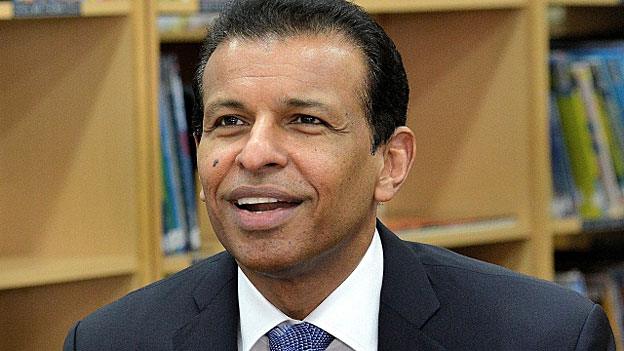
Sunny Varkey says the lack of respect for teachers was the inspiration for the prize
This year saw the first Global Teacher Prize award ceremony being beamed around the world.
Nancie Atwell, a teacher from Maine in the United States, received the million-dollar prize and then, in the spirit of public service, announced that she was giving it all to her school.
Applauding her on stage was former US president Bill Clinton and, looking down benignly from a video screen, Bill Gates.
Much less conspicuous was the man who had come up with the idea in the first place.
Sunny Varkey was the founder and funder of this global project to bring status and recognition - as well as some glitz and glamour - to teaching.
But Mr Varkey admits that before launching the project almost everyone told him it was a terrible idea.
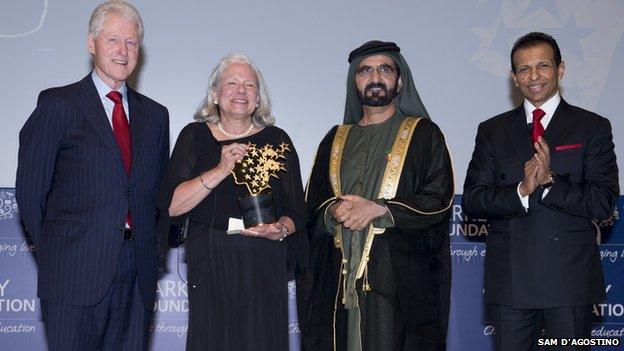
Nancie Atwell gave her school the $1m prize money for excellence in teaching
They thought it would go against the grain to see an individual teacher getting a prize of a size usually associated with a film star's payout or a banker's bonus.
But he ignored them and followed his own instincts.
Teacher status
"Teaching needs to be the most important profession in the world and they've got to be given their due respect," says Mr Varkey.
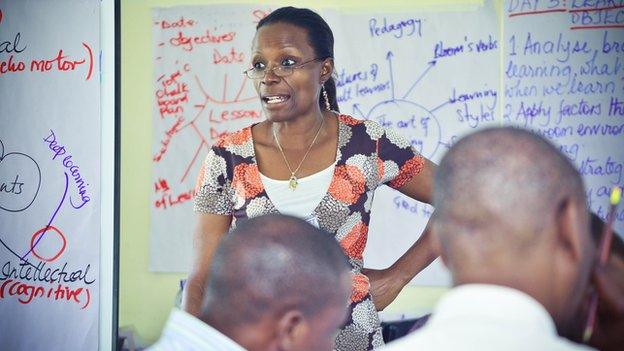
There have been 12,000 teachers trained in Uganda by Sunny Varkey's foundation
It irritated him that reality TV stars were more likely to be splashed across magazine covers than people who really made a difference, such as teachers.
Sticking to your own instincts in the face of opposition, says Mr Varkey, is one of the characteristics of an entrepreneur.
"This has been the story of my life," he says.

More stories from the BBC's Knowledge economy series, external looking at education from a global perspective and how to get in touch

The Indian-born billionaire, based in Dubai, is one of the most successful education entrepreneurs in the world, operating private and state schools in 14 countries - the greatest number concentrated in the Gulf - but also stretched across the Middle East, Asia, Africa, Europe and the United States.
Mr Varkey says he wants to expand his GEMS education group, suggesting the Far East, Latin America and Africa as likely target markets.
Migrant school
But having made a fortune from education he now seems more interested in giving it away, through a philanthropic foundation with a mission to promote and improve teaching.
Teaching is in his blood.
Both his parents were teachers, Christians from Kerala in south India, who migrated to Dubai in 1959.
"It was a Herculean task," he said. They travelled to the Gulf by ship and then set up a private tutoring business, before opening a school for the local Indian community.
Sunny, as a youngster, helped by driving the school bus.
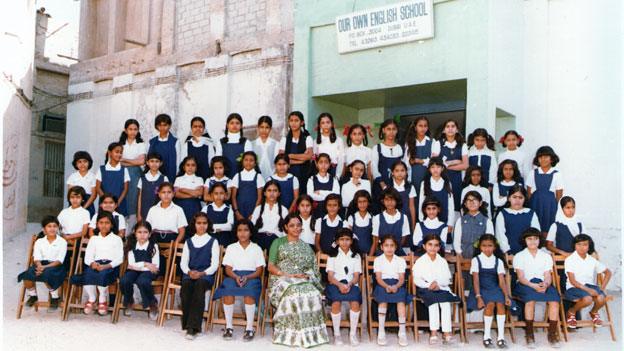
The first school was opened by his parents in the 1960s for the Indian community in Dubai
"I remember the respect that my parents were given - and back in India, teachers were held in very high esteem."
But he was "shocked" at how this high status seemed to be disappearing.
"As I got more involved in the education business and setting up more schools, I kept finding that the image and the respect for teachers was in decline.
"You have teachers who have helped to make prime ministers, presidents and scientists and nobody cares for them," he says.
When he went to the World Economic Forum in Davos he found the same lack of attention among the political elite. "There was no-one highlighting teachers and education."
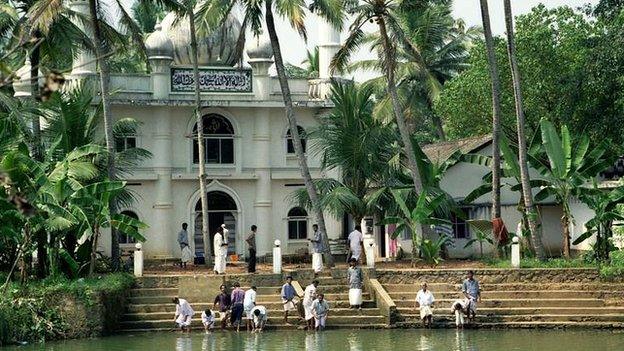
The Varkey family migrated to Dubai from the Kerala region of south India
Based in Dubai, a city which speaks every language apart from understatement, the Global Teacher Prize was built to be big enough to impress. The award ceremony attracted world leaders and some of the finalists went to the Vatican to meet the Pope.
The message was that teaching didn't always have to be the poor relation.
"I talk about it all the time, how important the teacher is in all our lives," he says.
Teacher shortage
But in swathes of the developing world the big problem for schools is that there are no teachers at all. The United Nations has warned that more than four million extra primary and lower secondary teachers will be needed in the next 15 years in sub-Saharan Africa.
Mr Varkey, a Unesco goodwill ambassador, has funded the training of 12,000 teachers in Uganda through his foundation, with plans to expand this to 250,000. For every private pupil they teach, they aim to reach another 100 pupils outside of fee-paying schools.
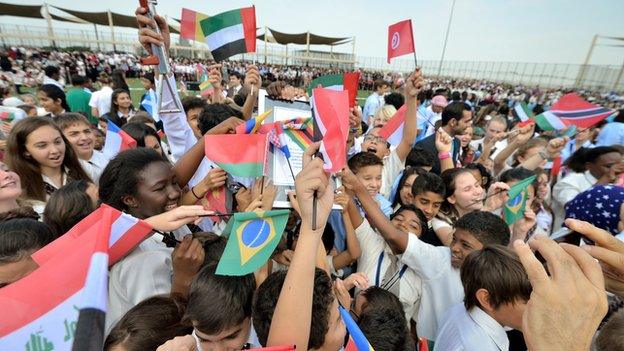
He says his international schools are a microcosm of different cultures working together
There is also an innovation unit, experimenting with ways that technology can be used in the classroom, to improve teaching or to help teachers reach more pupils.
"Technology has done so much in other industries and I think education is going to follow suit, it's only a matter of time. Technology is going to play a part in delivering education and bringing down the cost."
Global citizenship
Dubai is a global crossroads, and the Varkey schools grew as the Gulf's oil and gas industries attracted more overseas workers and demand rose among a wealthier local population.
But the wider Middle East region has faced conflict and deep tensions between religions, countries and cultures.
Among Mr Varkey's next projects is the idea of teaching "global citizenship", promoting tolerance and mutual understanding.
His own story represents this multiple cultural identity - an Indian Christian running a business in an Islamic Arab country, his international schools as microcosms of different cultures working together.
For better or worse, he says it all comes back to what people are taught.
"All the problems and solutions in the world are in education. Look at the divide between rich and poor, peace and terrorism, the gender inequality, lack of skills, unemployment.
"It all comes back to education."